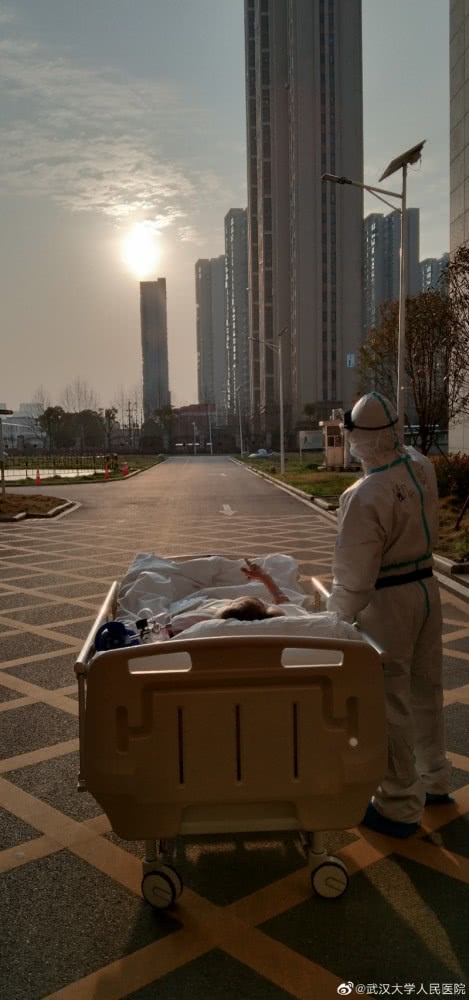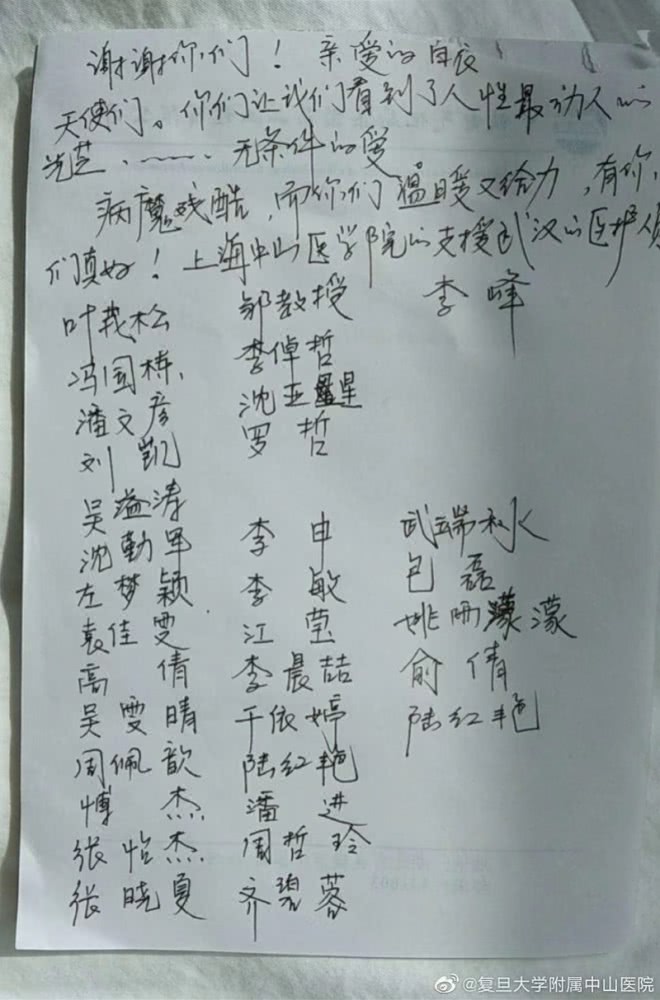Dialogue 1 Doctor who watched the sunset with octogenarians: We watched it together for 5 minutes, but I didn’t expect to go to the hot search.

On March 5th, a photo of a patient and a doctor watching the sunset in Wuhan touched countless people. At about 17 o’clock that day, an 87-year-old man suffering from critically ill COVID-19 was said to have "not seen the sun for a month" in the East Campus of Wuhan University People’s Hospital. On the way to escort the old man out of the ward for CT scan, Liu Kai, a doctor of Hubei Aid Medical Team of Zhongshan Hospital affiliated to Fudan University, who was born in 1993, stopped to let the old man in the hospital bed enjoy a long-lost sunset.
At 23: 00 that day, Southern Reporter contacted Dr. Liu Kai. Talking about the feeling of "being popular and out of the circle", he said with a smile that "it is the credit of all my colleagues, which makes me join in the fun alone."
According to the staff of Wuhan University People’s Hospital, the photographer of this photo is Gan Junchao, the inspector of the hospital. Born in December 1999, he chose to work as a volunteer in the hospital for more than eight hours a day because the school has not yet started.
lVolunteers helped to photograph the rare sunset, but they didn’t expect to "go out of the circle"
Nandu: As far as you know, what kind of patient is the old man in the photo?
Liu Kai: Our ward is responsible for more than 40 critically ill patients. Doctors like me are divided into different groups. This old gentleman, who is over eighty, has heart disease himself. When he first moved in, his oxygen saturation was not high, so he was a critically ill patient.
I heard from Luo Zhe, the captain of the medical team, that he was a violinist. When he first moved in, he didn’t have a high will to survive and didn’t eat much. He always lay there silently. Captain Luo advised him to wait until you are better, and then go back to play musical instruments.
When he was in good spirits, he even hummed some songs to us, some of which I can’t name, only "When will you come again" and "Turkish March".
After almost a month of treatment, his symptoms have eased. When I first came here, I couldn’t breathe. Now I can breathe better and talk to our medical staff.
Nandu: What was the situation at that time and took this photo?
Liu Kai: The ward where the old man lives and the CT room are not in the same building. At that time, a volunteer came to push him to have a CT examination, and I was responsible for helping to deliver it together. It’s about 5 o’clock in the afternoon. I looked up and found that there was good sunshine in front of the two buildings. The old man must have not seen the sunshine for a long time like me, so I thought about whether to watch the sunset together.
The old man lay there without speaking, but I observed that his expression was very relaxed and his eyes became strong. However, it was still windy outside in Wuhan at this time, so we just stopped there and watched the sunset quietly for about 5 minutes.
The photo was taken by the volunteer and the inspector of Wuhan University People’s Hospital. I always see him in the hospital, but the specific age and name are not very clear.
Later, a colleague told me that the old man who returned to the ward after CT examination was very happy, but he was tired after going out and fell asleep soon.
Nandu: When did you find yourself angry with this photo?
Liu Kai: After seeing the old man off, I went to work in the polluted area for more than an hour. After I came back, my colleague Luo Zhe told me that Weibo Hot Search was on this picture. Volunteers and I originally took this photo just to keep a souvenir for ourselves. My plan at that time was to take a photo with the old gentleman when he was discharged from the hospital, and put together the sunset map and the photo to send a circle of friends. I didn’t expect the circle of friends to be sent yet, but this sunset photo was "out of the circle" first.
Nandu: How does it feel to be popular?
Liu Kai: Thank you to all my colleagues and Zhongshan Hospital, for your contribution, which made me join in the fun alone. This time, I came to Wuhan not only for my birthday, but also for a hot search. I want to commemorate my life.
lAdapt to high-intensity work and play badminton to maintain immunity.
Nandu: Why did you come to Wuhan for support? Will the family be worried?
Liu Kai: I am a respiratory therapist in the Department of Critical Care Medicine of Zhongshan Hospital affiliated to Fudan University, and I am the most suitable doctor to come to Wuhan for support. After the outbreak of the COVID-19 epidemic, I was mentally ready to leave at any time, and I also communicated with my wife about it. As a surgical nurse, she was very supportive of my work.
On February 6, the whole hospital held a meeting for more than three hours from 6: 00 to 9: 00 in the morning, and selected more than 130 medical staff to support Wuhan. I went home and cleaned up a little, and set off from Shanghai to Wuhan on February 7.
Nandu: Is it intense to work in Wuhan?
Liu Kai: For a doctor in the intensive care department like me, high-intensity work is a daily routine. When we were in Shanghai, we had to do more than 5000 operations in cardiac surgery a year. So when I arrived in Wuhan, I was in charge of the severe patients in COVID-19, and this intensity could adapt quickly.
The real difficulty is that COVID-19 is an unknown and brand-new disease to doctors all over the world, and our knowledge of the disease is also deepening. Our first-line medical staff will tell several team leaders about the clinical observation and implement the treatment plan according to their guidance.
Nandu: Are there any patients in Wu Hanyou who particularly touched you?
Liu Kai: What moved me most was that a concerned patient wrote down the names of all the doctors and nurses who cared for him before he left the hospital on March 4th. This moment is my motivation to work hard.

The patient handwritten down the names of all the doctors and nurses who took care of him.
Nandu: What exercise do you do every day to keep your immunity?
Liu Kai: We must pay attention to the combination of work and rest when working in the front line. I arrived in Wuhan from Shanghai on February 7, and the shortage of living materials and protective materials has eased a lot compared with the previous period. In the hotel where I stay after work, there are medical players from Hubei, Qingdao and Shanghai, and we will play badminton together in the hotel open space. Badminton is a relatively safe sport in an epidemic situation. The two doctors and nurses are far apart before, and running can also exercise and improve immunity.
Nandu: What do you want to do most after the epidemic is over?
Liu Kai: Of course, eating hot pot, whether it’s old Beijing hot pot, Chaoshan beef pot or Chongqing spicy hot pot, is good!
Written by Southern Reporter Zhu Weijing